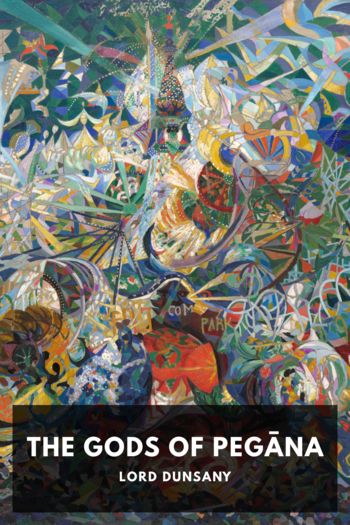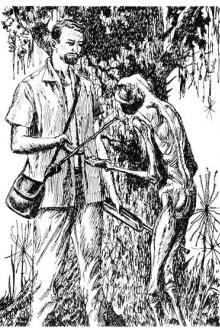Tarashana by Rachel Neumeier (best novels to read for students .TXT) 📗

- Author: Rachel Neumeier
Book online «Tarashana by Rachel Neumeier (best novels to read for students .TXT) 📗». Author Rachel Neumeier
“How empty it is!” Aras said, bringing his horse up beside mine.
I smiled. “People are there,” I told him. “We will probably meet at least one of the great inGara herds as we travel farther north.”
“Very well, if you say so!” he said, smiling in return. “But it still looks as though this grassland runs empty and open all the way to the edges of the world.”
The land truly did give that appearance. I had not come onto the steppe for two years—more than two now. I had not realized until this moment how much I had missed the broad land and infinite sky. “Come,” I said to him—to all the Lau. “This is a good season to journey across the steppe. Very few of your people have ever seen the high north.” I nudged my mare, and we rode away from the scattered trees and into the wide grasslands.
We traveled more slowly after that, letting the horses graze much more because we had run out of grain. When horses must graze, a journey may be as slow and comfortable as anyone could wish. We had plenty of time now to hunt the small animals of the steppe, and learn each other’s languages—and learn other things as well. Rakasa would not trouble himself much over sorcery, but Bara wished to learn how to guard his mind against sorcery, and Tano the same. Almost every day, Aras took one or the other aside. Almost every day, that one came back silent and shaken. I remembered very well how that had been for me, and pretended not to notice.
We continued to practice with the long swords as well. Geras was calm when he sparred, impossible to fluster. He was perfectly aware that he could not match Ugaro strength, but he knew how to use his long reach to advantage. Sometimes he could defeat an Ugaro opponent. Suyet was faster, but otherwise could not match Geras. Rakasa and Bara and I were all close to equally matched, but Bara was the more difficult opponent because he disliked losing, while Rakasa minded that less. None of us could match Aras for skill, though if an Ugaro sparred him carefully and avoided defeat long enough, sometimes he would become tired enough to agree to step back, permitting the match to end in a draw.
Tano did not improve. Or, he did, but only against Suyet, and to some measure against Geras, not when matched against Rakasa or Bara. Against me, his skill became worse every day.
Our third day after we had begun traveling across the steppe, when we had come to a shallow pond where the horses could drink and graze, I finally took Tano some distance from the others and made him spar me. This time I pressed him hard, much harder than I had ever done before. When I did not relent, his skill worsened markedly even from moment to moment. His defense became especially weak. If it had been a real fight, I could have killed him easily. I could have done anything to him I wanted. Finally I struck past his weakened guard, three times, very fast, giving him hard blows to his thigh, his side, his arm. Then I stepped back with a gesture of disgust, dropping my guard so that I offered him a very, very big opening. He could have won the match then, at that moment, if he had driven forward.
He did not. He dropped to his knees and bowed his head, panting with the effort of the fight. His color was high with exertion and shame.
I sat down cross-legged, facing him, laying my practice sword aside. I was breathing hard too, but I tried not to show that. I asked him, making certain I spoke steadily, “What do you expect me to do now?”
He did not look up. He did not answer me. I waited, leaving the question between us. After some time, he said, “I should be beaten for my stupidity and carelessness.”
I had expected him to say something close to that. “Was that stupidity and carelessness?” I asked. “It was very bad fighting. You would have done much better against one of the Lau. When you spar against me, all your skill fails. I gave you an opening that would have let you defeat me. You did not take it. Did you see it?”
He shook his head. Then he shrugged. Then he shook his head again. He did not know. I was not surprised. I said, “I would not say your failure just now came from stupidity or carelessness. I would say the problem came from fear.”
He bowed low. His breathing was easing now, but he was still red with shame. He said, “Then I should be beaten for cowardice. Or put to death for it. The inGara cannot have any use at all for a cowardly inTasiyo.”
I let that stand in the air long enough to show I had considered his words. Then I said, “I think the problem is not cowardice. I think the difficulty comes because when you face a certain kind of opponent, you have not been taught to fight, but to take punishment.” I paused again to let that idea stand in the air as well. Then I said, even more explicitly, “When you should be sparring with me, you are truly only waiting for me to punish you.”
Tano straightened, slowly, though he did not look up.
I said as gently as I could, “That is what I think I see. But I may be mistaken.”
He glanced up, but looked down again at once. I said nothing, only waited. After some time, he said quietly, “I never thought of it that





Comments (0)